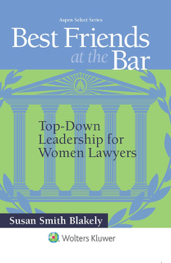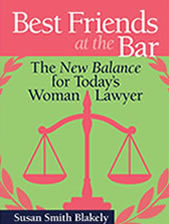During this bar exam week, I am reminded of the great debate about the necessity for bar exams at all. This is something I have pondered many times before and written about as well. Maybe it is because of my respect for knowledge — and the pursuit of knowledge — and not memorization. Maybe it is because I am a pragmatist and understand that whatever you spit out to pass a bar exam can seldom be relied on in practice. Everything has to be researched again and updated unless you are hankering for a malpractice suit. Everything. And all competent practitioners know it.
Or maybe it is because I am from Wisconsin, the birthing ground for progressives, and I know a lot of lawyers practicing there who never wrote a bar exam and are very competent and impressive members of the bar. My Dad was one of them.
One of the things that Wisconsin got very right over the years is what is known as “diploma privilege.” Diploma privilege in Wisconsin confers a license to practice law based on a diploma from one of the two law schools in the state. It has been alive and well for generations in Wisconsin. If it was a problem, you can bet that the Wisconsin legislature would have changed the policy long ago. No state wants to encourage and tolerate incompetence among its lawyers.
I wrote about this in a blog on September 8, 2020 during the fiasco of bad bar exam experiences associated with the pandemic. If you are interested, you can access that blog in the Archives under that date on the Home Page of this website.
Many others have addressed the subject before and since. When looking at diploma privilege Wisconsin-style, the salient question is how many Wisconsin lawyers are deemed incompetent or a threat to the quality of the bar because of diploma privilege. The answer is very few, as confirmed by a recent article in the Georgetown Journal of Legal Ethics, which was referenced in Notice and Comment earlier this week where author, David Lat, revisited the subject of diploma privilege.
The Georgetown Journal of Legal Ethics article sheds important light on the subject of diploma privilege. In that article, Professor Milan Markovic examines the experience of diploma privilege in Wisconsin and concludes:
[T]he bar examination requirement has no effect on attorney misconduct. The complaint rate against Wisconsin attorneys is similar to that of other jurisdictions, and Wisconsin attorneys are charged with misconduct less often than attorneys in most other states. Moreover, the rate of public discipline against Wisconsin attorneys who were admitted via the diploma privilege is the same as that of Wisconsin attorneys admitted via bar examinations.
Professor Markovic further noted that, during the pandemic, four states and the District of Columbia adopted some form of limited or modified diploma privilege. In 2021, these jurisdictions all returned to administering the bar exam again, however. But the pandemic experience shows that instituting diploma privilege is possible and establishes the groundwork for more lasting policy change in the future.
In recent years, the support for diploma privilege has grown. Instead of assigning incompetence to lawyers who do not write and pass a bar exam, maybe the American Bar Association should be looking at its accreditation criteria for law schools. The fact that Wisconsin only has two law schools — both of them very fine legal training institutions — might be a clue in this process.
Control the quality of legal education, and bar exams will not be necessary to protect the quality of the bar. It seems fundamental.













